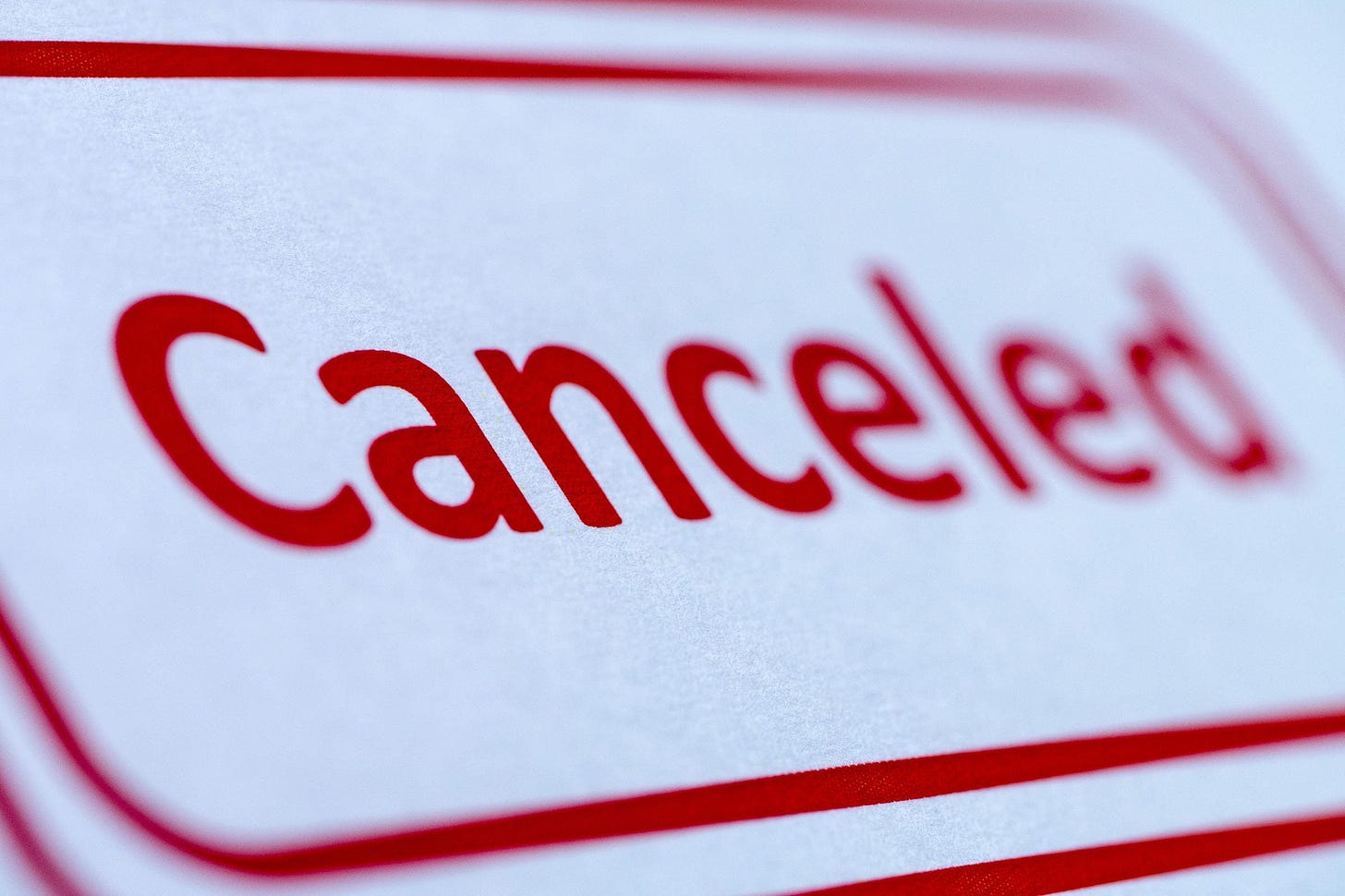Weekly questions’ comment sections are left open for one week. This thread is now locked.
Over the last three months of 2024, I asked a few weekly questions I worried would prove too controversial for my tastes here. Each time, I expected trolls to show up and ruin the experience of discussing and debating art and culture with you. And each time…that didn’t happen. Emboldened (hopefully not wrongly) by the maturity and respectfulness of the community I’ve built around 5AM StoryTalk, I’ve decided to kick off 2025 in similar fashion, challenging you all to join me in a thoughtful conversation about another challenging cultural question. Here goes:
What is cancel culture and does it even exist in the arts?
I’m inspired to ask this question because of how many allegedly canceled artists are out there still making large fortunes off their creative labor. Mel Gibson is still working and, in fact, allegedly about to direct a new Lethal Weapon film. Ellen DeGeneres just made millions from Netflix to star in a comedy special about how much being canceled sucked. It took decades for actors to even begin questioning whether it’s a good idea to star in films from Woody Allen and Roman Polanski, but both still work. Joss Whedon is currently very much unemployed, but is that an example of “being canceled” or is it an HR nightmare since he’s pretty much admitted to or, at least, hasn’t denied most of what he was accused of.
If you choose to answer or reply to others’ comments/ideas, please remember that this is an invitation to serious discourse. If you insult other people in any way, I will either issue a warning and ask you to edit or just block you if the abuse is egregious enough. Don’t let me down.





Cancel culture is real and it is weaponized in the arts where the real damage occurs, at the entry and midlevel. Artists who have power and clout who are doing unethical and illegal things are called out publicly (rightly so) but, as you mentioned above, unless their behavior puts them in prison, they often get a chance to redeem themselves. For those with far less power or capital, the damage is done and the professional career is likely over.
It’s basically a public version of being privately blacklisted. It sucks because it doesn’t allow for forgiveness or second chances unless you have the money and connections in the first place. People shun others who are considered tainted.
As we are witnessing with the Lively / Baldoni thing, social media mobbing is used manipulatively by people who understand how to weaponize public opinion. Neither of them have been cancelled yet, but it’s a very interesting example of the mechanisms behind what fuels cancel culture.
People should be called out if they are behaving harmfully, but I also think the court of public opinion is bloodthirsty and enjoys drama.
Ooof, a good one! Complicated one.
I'll start by saying that it's one thing to hold people guilty of transgressions (like sexual harassment or assault, and/or creating a hostile/abusive work environment) accountable, in the form of refusing to work with them or employ them. Calling this "cancel culture" is to me disingenuous, because it's a completely appropriate consequence for legitimately bad or harmful behavior. And it also, as you point out, all too rarely sticks.
Then there's the much stickier issue of trying to "cancel" people for expressing views that you find (are perhaps genuinely are) very objectionable. I definitely believe that if you say something dumb or offensive in public or in art, you have to be willing to own whatever backlash is coming to you - if you speak in public at all, you have to prepare yourself for the possibility of pushback. However some of these kinds pile-ons are definitely done in very bad faith, either to intimidate people out of speaking (very frequently women), police people for nonconformity or not toeing the line, or because people just somehow don't think they should have to engage with ideas they find difficult or don't like.
Also, you can't really "cancel" someone like, say, Woody Allen or Polanski entirely. You can hobble their future career, but the past work is out there, and you can't remove its influence even if you recontextualize it. Like, CHINATOWN is CHINATOWN, no matter what you think of Polanski. And MANHATTAN was huge for me, even though certain aspects of it *really* give me the ick.